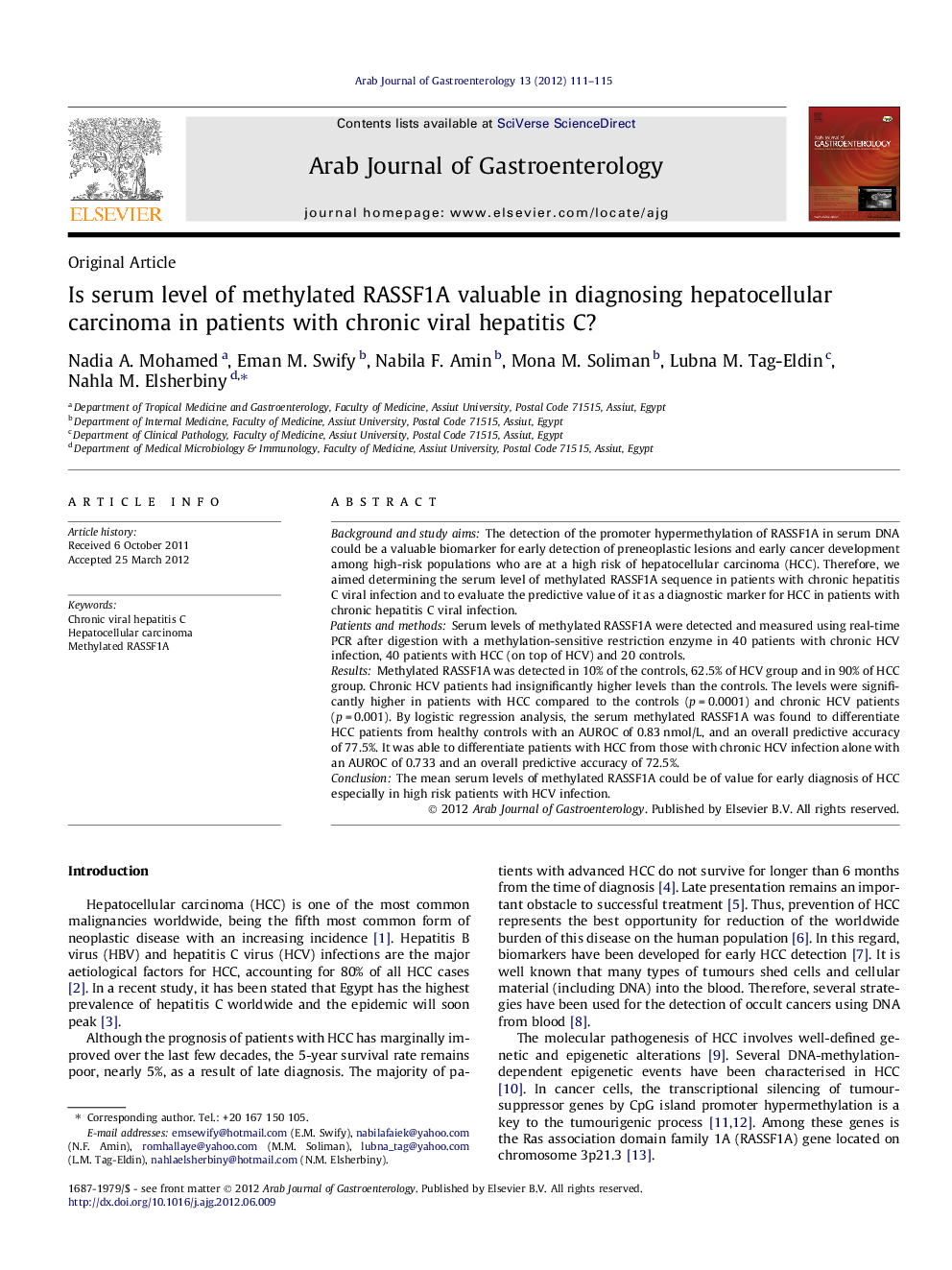| Article ID | Journal | Published Year | Pages | File Type |
|---|---|---|---|---|
| 3280920 | Arab Journal of Gastroenterology | 2012 | 5 Pages |
Background and study aimsThe detection of the promoter hypermethylation of RASSF1A in serum DNA could be a valuable biomarker for early detection of preneoplastic lesions and early cancer development among high-risk populations who are at a high risk of hepatocellular carcinoma (HCC). Therefore, we aimed determining the serum level of methylated RASSF1A sequence in patients with chronic hepatitis C viral infection and to evaluate the predictive value of it as a diagnostic marker for HCC in patients with chronic hepatitis C viral infection.Patients and methodsSerum levels of methylated RASSF1A were detected and measured using real-time PCR after digestion with a methylation-sensitive restriction enzyme in 40 patients with chronic HCV infection, 40 patients with HCC (on top of HCV) and 20 controls.ResultsMethylated RASSF1A was detected in 10% of the controls, 62.5% of HCV group and in 90% of HCC group. Chronic HCV patients had insignificantly higher levels than the controls. The levels were significantly higher in patients with HCC compared to the controls (p = 0.0001) and chronic HCV patients (p = 0.001). By logistic regression analysis, the serum methylated RASSF1A was found to differentiate HCC patients from healthy controls with an AUROC of 0.83 nmol/L, and an overall predictive accuracy of 77.5%. It was able to differentiate patients with HCC from those with chronic HCV infection alone with an AUROC of 0.733 and an overall predictive accuracy of 72.5%.ConclusionThe mean serum levels of methylated RASSF1A could be of value for early diagnosis of HCC especially in high risk patients with HCV infection.
